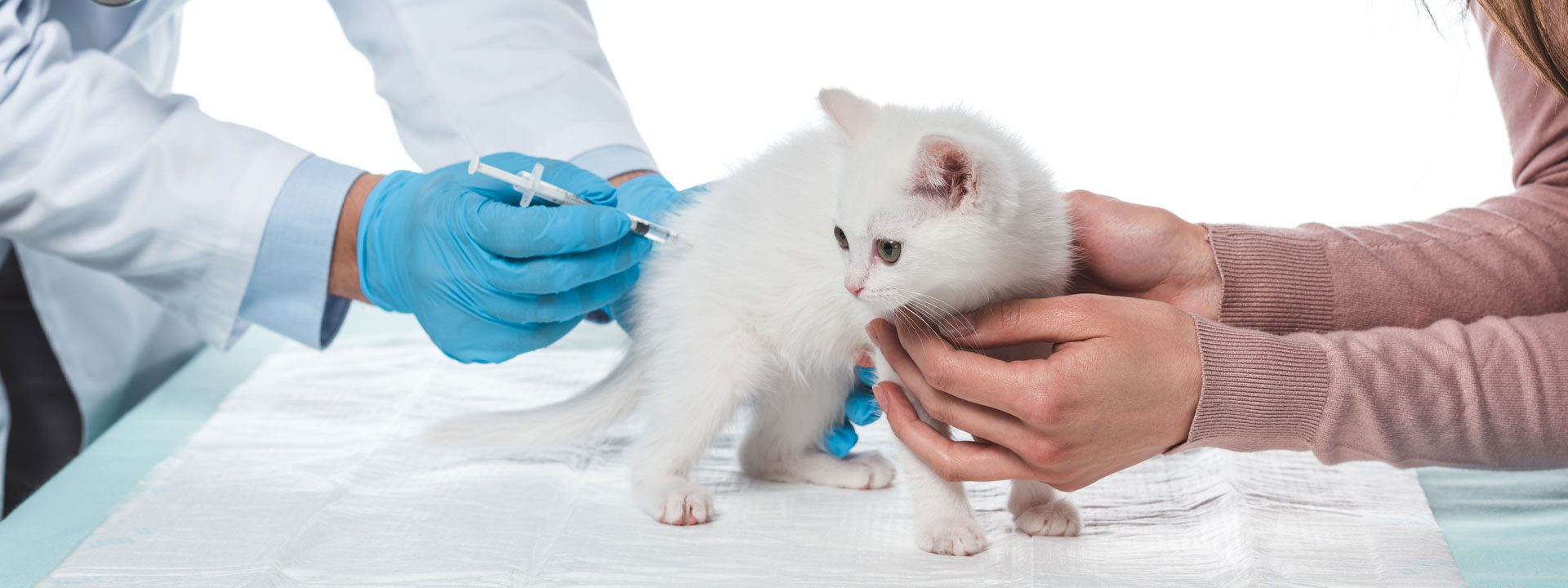Have you just brought a new kitten into your home? Congratulations – cats make a wonderful addition to families, bringing love and companionship to any home. Owning a cat is a great way for children to learn about responsibility, compassion and how to interact with other animals, as well as providing them with lots of fun and cuddles. So, here’s your Your Kitten’s Health Care Plan.
To help you look after your little feline companion properly, we’ve put together this practical owner’s guide, outlining some important factors you’ll need to consider for your kitten’s wellbeing.
Kittens are sensitive animals
When it comes to the socialization of kittens, there is a critical period that shouldn’t be overlooked. This sensitive phase takes place between the ages of two and seven weeks. These few weeks play a crucial role in shaping their future social behavior. During this time, kittens are like sponges, absorbing and learning from their surroundings. It’s a fascinating period that deserves our attention and understanding.
When bringing a new kitten into your home, it’s crucial to prioritize their comfort and well-being. Creating a safe and welcoming environment for your furry friend is not only essential for their physical health but also for their mental and emotional state.
Bringing Your Kitten Home
Your kitten will most likely be a bit nervous and unsure in a new environment. He or she will be used to being with its mother and siblings so will be feeling a little lost at first.
Make sure you plan ahead, taking your kitten straight to a quiet, warm place inside your home where it can feel relaxed and explore when it’s ready. The laundry can be a good choice, providing a quiet room that isn’t a major thoroughfare of the house.
Have a little bed ready for your cat, in a pet bed, basket or box, so he or she can curl up and feel cosy and safe. You can place a warm hot water bottle in the bed for extra comfort.
Introduce children and other pets very slowly and carefully to your new family member. You may even decide to wait a few days until kitten feels more settled and confident.
Your Kitten’s Health Care Plan: Kitten Playtime
Make sure your kitten has toys and playthings to keep them entertained and active. Cats need things to scratch and chew – if you don’t provide them with a scratching post they’ll look for the next best thing!
Keep electrical cords and anything else that could be dangerous to chew or climb away from your kitten’s reach.
Food and Nutrition for Healthy Cats
Just like humans, kittens need nutritious food to grow up strong and healthy, generally with 2 or 3 meals a day. Premium pet food brands offer food specially formulated for young cats, providing your kitten with a balanced diet.
Cats are good at self-regulating their food, even when young, so leave kitten biscuits out for them to snack on throughout the day and always have fresh clean water available.
Kitten Toilet Training
Often you’ll find that your kitten has already picked up good toilet habits from their mother or litter mates. However, you’ll still need to encourage them in their new environment.
Have a readily accessible litter tray, away from busy areas of the house or other pets, for your kitten to use comfortably. Be sure to give your kitten lots of praise when they use the tray correctly, and don’t ever punish them for accidents – this will lead to fear of using the tray and more accidents.
Vaccinations for Cats
Cats are generally vaccinated at 8 weeks, 12 weeks, 16 weeks and then once a year, to protect them from diseases such as feline enteritis and feline respiratory viruses, which can be very serious and even fatal, particularly for kittens.
As well as vaccinations, you need to factor in desexing, microchipping, dental health checks, regular worming and flea control for your cat, as well as any emergency vet treatment in case of accident or illness.
Pet Insurance
Pet insurance is on the rise for both companion and working animals, and we couldn’t recommend it enough. Signing up for pet insurance while your pet is still young ensures that you will receive the most comprehensive cover. Many diseases become evident within the first few years of life, and if your furry friend develops evidence of a problem prior to you taking out insurance they will be covered for that particular problem or disease.
There are a variety of pet insurance policies to suit different needs. Pet insurance helps take the financial stress out of emergencies and gives you peace of mid knowing that your pet will always receive the best possible medical treatment without having to worry about the bill. Port Kennedy Veterinary Hospital is offering its clients medical cover through Petplan.
Preventative Healthcare for Your Cat
If you’re reading this to help gauge whether you can responsibly care for a cat, please carefully consider the time and money you’ll need to invest into your newest family member – owning a pet is a long-term responsibility and our animal friends deserve a safe home.
Port Kennedy Veterinary Hospital offers a range of affordable wellness packages that provide regular preventative care for your cat’s health. Regular check-ups ensure ongoing good health for your cat, and by preventing illness and disease in the first place you’ll also be saving money on potentially expensive vet bills.
Monthly payment plans will take a lot of the financial stress out of owning a pet, giving you 100% peace of mind that you’re looking after them properly, and have somewhere to turn to in case of emergency. You’ll also have professional and qualified vets on hand to offer you guidance and support in looking after your kitten. Now enjoy your time with your new feline friend!
